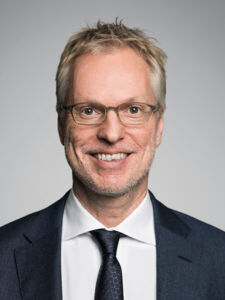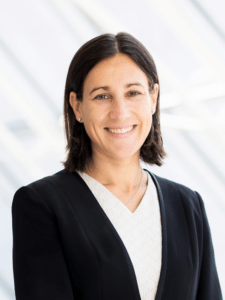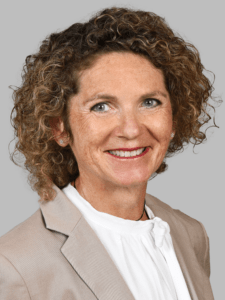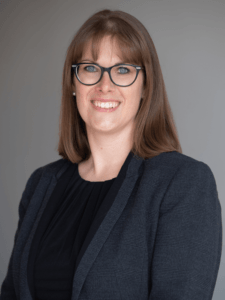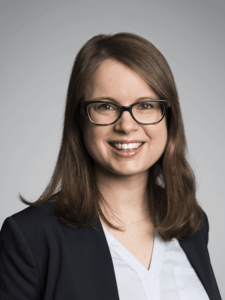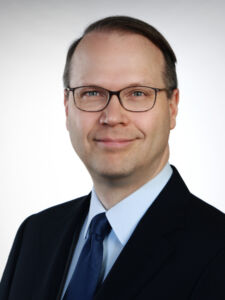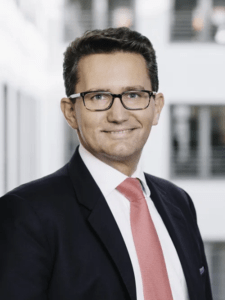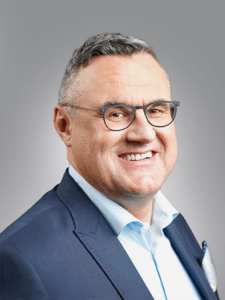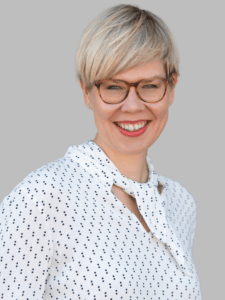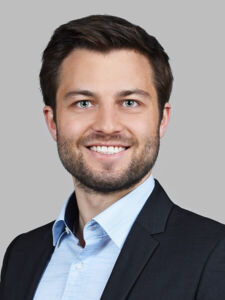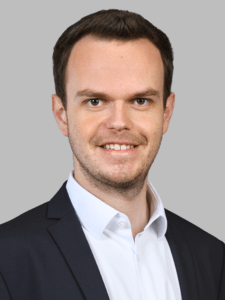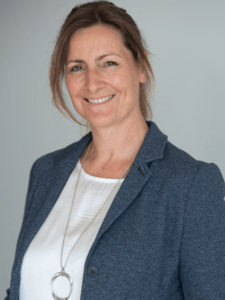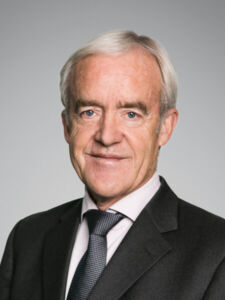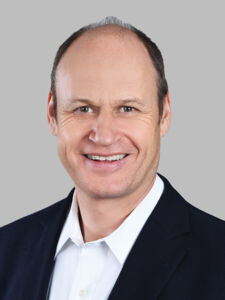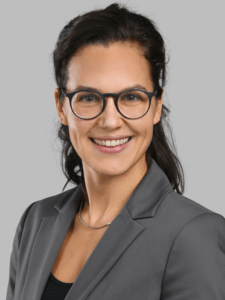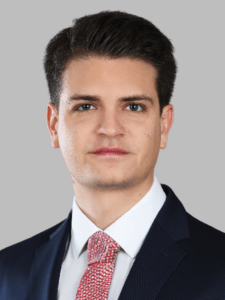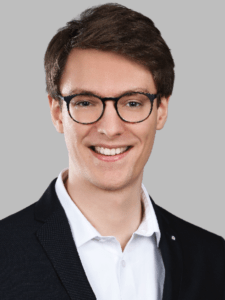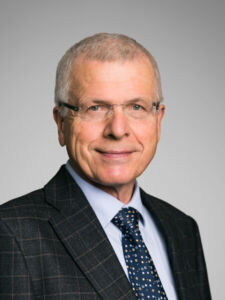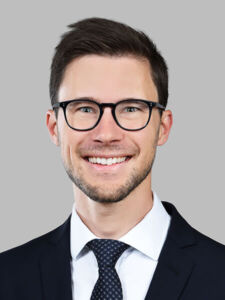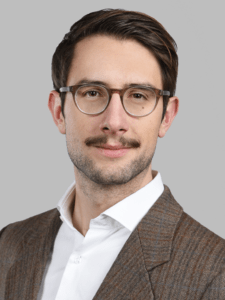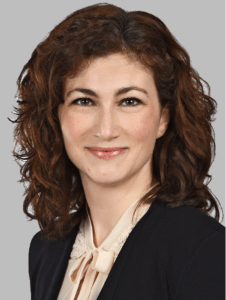
About us
What we stand for, where we come from and who we are.
Strategy and Vision
Our motto:
«We create and share knowledge in Strategic Management that is equally rigorous and relevant and
has a positive impact for academics, students, executives, and society at large»

Our Commitment
Facts and Stories
Take a journey back in time through the history of the IoMS. Ever since it was established in 1953, strategic management, organizational theory and design, and financial management have been among the core fields of the IoMS.
In the context of the liberal constitution of our society and economy, the question of what should be understood by desirable progress is becoming more acute. On September 17, 2004, around 50 years after the founding of the institute, around 150 former and current employees of the IfB came together for the anniversary conference in St. Gallen. The focus was on the following question: What do former and current employees of the IfB consider today, 50 years after the institute was founded, to be central issues and future challenges in management? Inspired by two impulse contributions by Professor Dr. Peter Ulrich and Dr. Beat Kappeler has led to extremely diverse, controversial and highly committed discussions on current topics such as dealing with uncertainty and change, corporate responsibility towards society, social justice, progress and innovation through constant scientific achievements.
In the future, the IfB will endeavor to make a valuable contribution to the analysis and design of challenges and trends for entrepreneurs and managers by means od the research, teaching and continuing education program as well as through close cooperation with companies.
Today, the IfB research activities are aimed at corporate strategy and governance, organization theory, corporate acquisitions and alliances, as well as systems methodology and competition theory.
The anniversary conference marking the 40th anniversary of the IfB in 1994 was dedicated to the topic of "Successfully managing entrepreneurial change". Exactly this topic should also become the formative program of the IfB, as far as the development of the institute is concerned in the following years. Of central importance was the development of international relationships, primarily in the Anglo-Saxon, Scandinavian and Asian regions. In 1995, various American colleagues were invited to St. Gallen, while the directors of the institute themselves traveled to Japan to establish contacts with Hitotsubashi University in Tokyo. Similar contacts were established with the University of Michigan in Ann Arbor and with the Warwick Business School (University of Warwick, Coventry/UK. These contacts could be used in a targeted manner to recruit several leading international scientists for guest professorships and guest lectures at the HSG in the years that followed to St. Gallen, which represented an enormous enrichment for research and teaching. Intensive cooperation with foreign colleagues through guest professorships and guest lectures has now become an integral part of the research culture and the range of courses at the IfB, just like vice versa IfB repeatedly took on guest professorships at Anglo-Saxon universities, for example at the Sloan School of Management in Cambridge, Massachusetts in 2000. The "Annual Report of the IfB" has also been published in two languages in German and English since 1998. 1999 was already a fifth of all new Publications written by IfB researchers in English. And since 2000, due to the progressive globalization of business and science, the strong focus on the German-speaking area in all three fields of activity of research, teaching and further education has increasingly receded into the background at the IfB.
In the context of the liberal constitution of our society and economy, the question of what should be understood by desirable progress is becoming more acute. On September 17, 2004, around 50 years after the founding of the institute, around 150 former and current employees of the IfB came together for the anniversary conference in St. Gallen. The focus was on the following question: What do former and current employees of the IfB consider today, 50 years after the institute was founded, to be central issues and future challenges in management? Inspired by two impulse contributions by Professor Dr. Peter Ulrich and Dr. Beat Kappeler has led to extremely diverse, controversial and highly committed discussions on current topics such as dealing with uncertainty and change, corporate responsibility towards society, social justice, progress and innovation through constant scientific achievements.
The IfB was also striving for the future to make a valuable contribution to the analysis and design of the challenges and trends for entrepreneurs and managers through the research, teaching and further education program as well as through close cooperation with companies.
Today, the IfB research activities are aimed at corporate strategy and governance, organization theory, corporate acquisitions and alliances, as well as systems methodology and competition theory.
Of central importance was the development of international relations, primarily in the Anglo-Saxon, Scandinavian and Asian regions.
The anniversary conference marking the 40th anniversary of the IfB in 1994 was dedicated to the topic of "Successfully managing entrepreneurial change". Exactly this topic should also become the formative program of the IfB, as far as the development of the institute is concerned in the following years. Of central importance was the development of international relationships, primarily in the Anglo-Saxon, Scandinavian and Asian regions. In 1995, various American colleagues were invited to St. Gallen, while the directors of the institute themselves traveled to Japan to establish contacts with Hitotsubashi University in Tokyo. Similar contacts were established with the University of Michigan in Ann Arbor and the Warwick Business School (University of Warwick, Coventry/UK. These contacts could be used in a targeted manner in the following years to attract several leading international scientists for guest professorships and guest lectures at the HSG in St. Gallen, which represented an enormous enrichment for research and teaching.
Intensive cooperation with foreign colleagues through guest professorships and guest lectures had meanwhile become an integral part of the research culture and the range of courses at the IfB, just as vice versa, lecturers from the IfB repeatedly took on guest professorships at Anglo-Saxon universities, e.g. in 2000 at the Sloan School of management in Cambridge, Massachusetts.
Since 1998, the "Annual Report of the IfB" has also been published as an "Annual Report" in both German and English. In 1999, a fifth of all new publications by IfB researchers were written in English. And since 2000, due to the progressive globalization of business and science, the strong focus on the German-speaking area in all three fields of activity of research, teaching and further education has increasingly receded into the background at the IfB.
The aim was to consistently develop the system-oriented management approach in the direction of an integrated management.
In the 1980s, the number of students at the University of St. Gallen increased extraordinarily sharply - there was a real "student mountain". "The wave of baby boomers is surging against the university with undiminished force," it said in 1984. And by 1985 that surge had developed into a flash tide. In 1987 a record number of 3,500 students was reached at the university, which meant a tenfold increase compared to the time when the IfB was founded.
Towards the end of the 1980s, the university reacted energetically to this growing number of students and consistently expanded the teaching staff. However, this growth step not only led to a relief for the lecturers and better support for the students. As is often the case when institutions grow, it also went hand in hand with a growing differentiation and specialization of the professional profiles of the newly selected lecturers and did not stop at the institute landscape. At the IfB, for example, the department of human resources and employee management was founded by Professor Dr. Rolf Wunderer, which was then completely spun off from the institute in 1988 and expanded into the independent Institute for Leadership and Personnel Management I.FPM-HSG. Likewise, with the resignation of Professor Dr. Hans Siegwart, who was rector of the HSG from 1974 to 1978, integrated the professorship for accounting for which he was responsible no longer in the IfB, but in the Institute for Accounting Controlling and Auditing ACA-HSG. The same development concerned that of Professor Dr. Emil Brauchlin founded the Research Center for International Management FIM-HSG. In the wake of the spin-offs, the professorships for organization were appointed at the IfB after the resignation of Professor Dr. Robert Staerkle doubled and now with Professor Dr. Peter Gomez and Professor Dr. Günter Müller-Stewens occupied. At the same time, under the direction of Professor Dr. Thomas Dyllick-Brenzinger (today Prorector of the HSG) built up the area of ecologically conscious corporate management at the IfB, which was then transferred to the newly founded Institute for Economics and Ecology IWÖ-HSG in 1995.
In summary, this era of institute development was characterized by very strong growth, the development of new subject areas, but also by increasing specialization and technical differentiation as well as the institutional spin-off of various subject areas.
Even then, Hans Ulrich postulated the development of a management philosophy that, beyond purely economic objectives, must contain fundamental statements on social responsibility. In the years 1979/80, the 25th anniversary of the IfB was the main focus and gave reason to look back on the successes of the past few years. The institute can look back on more than 1,000 successful consulting assignments, hundreds of conferences and seminars with more than 10,000 participants. The institute's own publications amounted to over 200 titles, books and brochures, which were distributed in approx. 200,000 copies. Licensed editions appeared in French, Italian, Spanish and Dutch. The institute's services were well received both in the Swiss economy and abroad. The institute's own research in the areas of personnel management, corporate organisation, finance and accounting, decision-making methods, operations research and corporate policy has received international recognition, but especially the independent research approach of a system-oriented management theory.
In keeping with the tradition of the IfB, it was a major concern to carefully put the new management approach - the idea of management as complexity management - into practice. After just a few years, the Institute for Business Administration was founded under the entrepreneurial direction of Professor Dr. Hans Ulrich on the HSG's largest university institute in terms of staff and finances: in 1964 it already had nine lecturers and thirty other employees. At that point in time, the annual budget exceeded 3.2 million Swiss francs, whereby the expenses could largely be covered by the income generated by the institute itself. At the end of this first epoch, around 400 personalities and companies belonged to the development society, which supported the institute with significant annual contributions. The consulting activity under the direction of Professor Dr. Hans Siegwart, who took over this managerial position from Dr. Hans Ulrich Baumberger had taken over, and which later under the direction of Dr. Ernst Nauer, developed a lively activity in the areas of organization, planning, human resources and accounting. Increasingly, the advice was also used by foreign clients. In 1964, the ten-day business seminar was held for the first time under the direction of Professor Dr. Robert Staerkle, which still plays a central role in the IfB's range of seminars. From 1967, the activities of the institute shifted more to the areas of training and further education as well as research.
The aim of the institute was a close integration of scientific methods and practical, application-oriented questions. After the end of the war, what was then the St. Gallen Graduate School of Economics and Business began a long-lasting phase of growth and differentiation. Strong and sustained economic growth as a result of post-war reconstruction led to rapidly growing student numbers in business administration. At the same time, efforts were increasingly being made in Switzerland to systematically anchor the subject of business administration and the more technically oriented business sciences at Swiss universities. Today's University of St. Gallen was founded in 1898 as a commercial academy by the former St. Gallen textile entrepreneurs, with wise foresight, but also out of direct self-interest in the qualified education of their descendants. Accordingly, it had an unmistakable practical focus and developed into the St. Gallen HHS Commercial College in 1911. It was not until 1938, forty years after its founding, that it received the right to award doctorates, which is essential for a university. The supreme body of the Institute for Business Administration was - as is still the case today - the Executive Committee, which was made up of professors from the Business Administration Department, a representative of the funding company and the Institute Director. The original research content included corporate organization, human resources, quantitative methods (accounting, data processing, operations research), corporate planning, sales, corporate management and corporate policy. At the forefront of the publication activities of the IfB were concise publications that were aimed directly at interested practitioners.
Executive Committee
Team
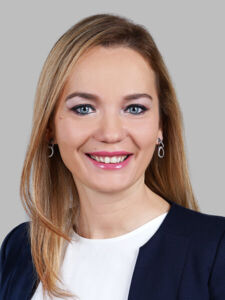
Mirgita Ademi
Finance & Controlling Professional, Human Resources, IT Administration
+41 71 224 23 59
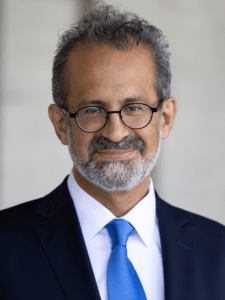
Omid Aschari
Prof. Dr. MBA
Managing Director SIM-HSG, Professor of Strategic Management, Senior Lecturer
+41 71 224 76 03
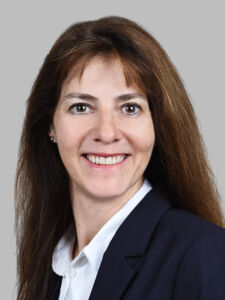
Christina Frei
Personal Assistant Prof. Dr. Karolin Frankenberger / Prof. Peter Murmann Ph.D.
+41 71 224 23 57

Alexander Göritz
M.Sc.
PhD Candidate, Research Associate, Executive Director Competence Center Alliances, Platforms & Ecosystems
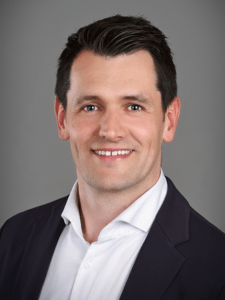
Erwin Hettich
Prof. Dr.
Assistant Professor of Strategy and Management
+41 71 224 76 22

Dora Maric
M.Sc.
PhD Candidate, Research Associate, Program Manager MGM-HSG
+41 71 224 23 36
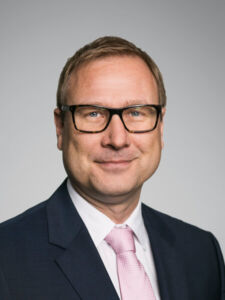
Volker Stadlmüller
Lic. oec. publ., MAS SHE UZH
Vice Director Institute of Management & Strategy (IoMS), Director Executive Education
+41 71 224 39 58
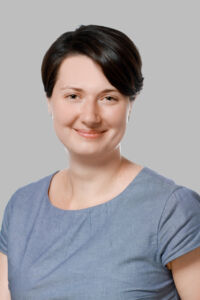
Veronika Vackova
SIM-HSG Manager Learning Experience & Core Projects
+41 71 224 31 34
